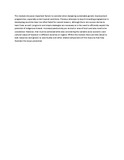Animal improvement for increased productivity and food availability
| dc.contributor.author | Philipsson, J | |
| dc.contributor.author | Rege, JEO | |
| dc.contributor.author | Zonabend, E | |
| dc.contributor.author | Okeyo, AM | |
| dc.date.accessioned | 2013-07-02T14:46:46Z | |
| dc.date.available | 2013-07-02T14:46:46Z | |
| dc.date.issued | 2011 | |
| dc.identifier.citation | Module 3: Philipsson J., Rege, J.E.O., Zonabend E. and Okeyo A.M. 2011. Sustainable breeding programmes for tropical farming systems In: Animal Genetics Training Resource, version 3, 2011. Ojango, J.M., Malmfors, B. and Okeyo, A.M. (Eds). International Livestock Research Institute, Nairobi, Kenya, and Swedish University of Agricultural Sciences, Uppsala, Sweden | en |
| dc.identifier.uri | http://agtr.ilri.cgiar.org/agtrweb/index.php?option=com_content&view=article&id=27&Itemid=267 | |
| dc.identifier.uri | http://hdl.handle.net/11295/44234 | |
| dc.description.abstract | This module discusses important factors to consider when designing sustainable genetic improvement programmes, especially under tropical conditions. Previous attempts to launch breeding programmes in developing countries have too often failed for several reasons, although there are success stories to learn from as well. Long-term and simple strategies are necessary as is the need to efficiently exploit the potential of indigenous breeds. Increased productivity per animal or area of land used also need to be considered. However, that must be achieved while also considering the variable socio-economic and cultural values of livestock in different societies or regions. Within the module there are links [blue] to web resources and [green] to case studies and other related components of this resource that help illustrate the issues presented. | en |
| dc.language.iso | en | en |
| dc.publisher | University of Nairobi. | en |
| dc.title | Animal improvement for increased productivity and food availability | en |
| dc.type | Book chapter | en |
| local.publisher | Departrment of Animal Production | en |

